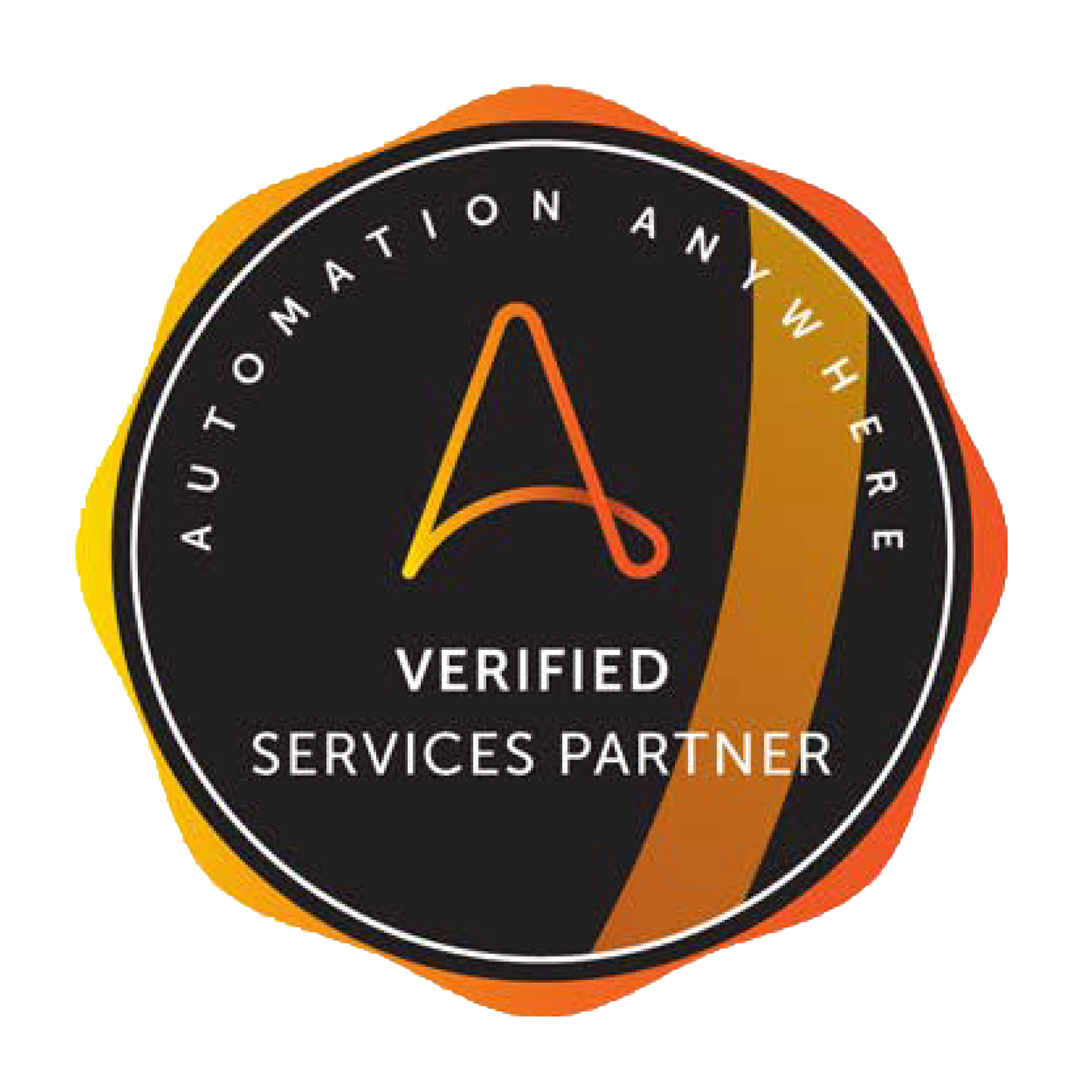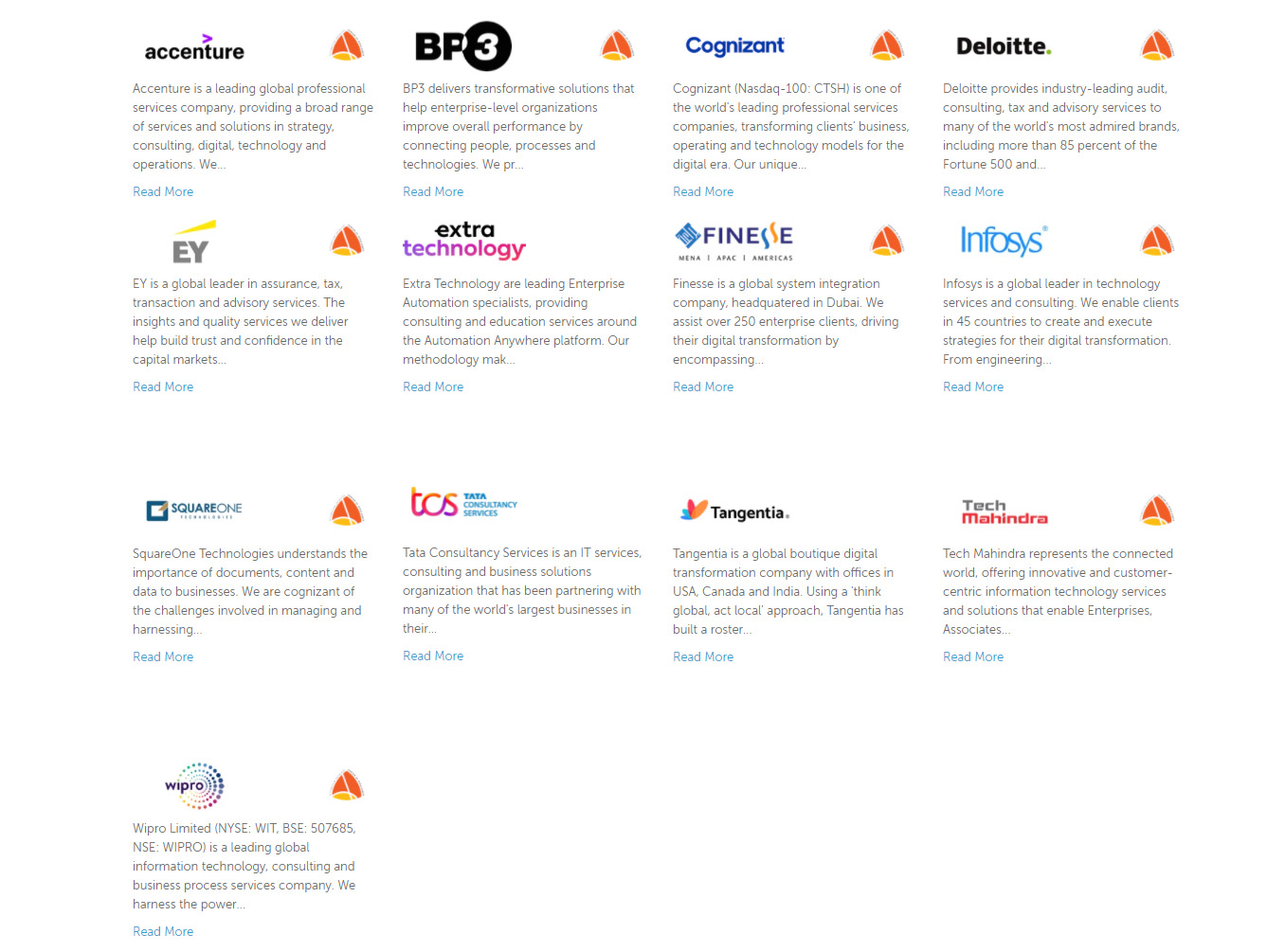|
|
||||||||||||||||||||||||||||||||||||||||||||||||||||||||||||||||||||||||||||
|
||||||||||||||||||||||||||||||||||||||||||||||||||||||||||||||||||||||||||||
Month: October 2021
Is Intelligent Automation the answer to the Great Resignation?
Author: Pria Vijayaratnam and Vijay Thomas
The times we are living in are unprecedented. The COVID-19 pandemic has not only changed how we work; it has changed how we view work. In the U.S., close to 4.3 million people voluntarily quit their jobs in August 2021. The reasons for this are many, including low wages, lack of career growth, boredom, and even pandemic fatigue. However, the result is that many companies are being left with staff shortages that threaten their business operations.
Executives are in a place where they have to brainstorm how they can keep their company functioning with fewer staff members. They bounce ideas back and forth—maybe they need to fix their recruitment strategy, invest more time and money into employee retention or completely change their business plan.
But there is a better solution, one that improves operations and costs less. It’s Automation. But before we get into what automation is and what it can do for you, let’s take a quick look at what losing human staff members means for a company.
What is the impact on a business when an employee resigns?
At first glance, it is clear that when a person resigns from a company, the tasks they once performed are left undone, unless there is someone to come in and take over. However, when a company loses their workforce, they lose more than just a body. They also lose the following:
- Leaders with industry knowledge, insights, and connections
- Innovators and thinkers who contribute great value to the company
- The institutional knowledge about services, products, and customers that goes with them
Is Automation the answer?
Automation—Robotic Process Automation to be precise—is the answer for many companies that are experiencing staff shortages. Software bots, or simply bots, can step in and handle repetitive tasks that are time-consuming and prone to human error.
These bots don’t need to sleep, a salary, or breaks and they won’t get sick or resign. What they will do is pick up the slack and leave your existing human workforce to focus on tasks that offer a higher value to the company and that are more meaningful to them. These bots can be programmed with all the institutional knowledge an employee would have, so nothing is lost.
Where can automation be used?

Robotic Process Automation is being adopted in many different departments across a number of industries. For example, it can be utilized in your Finance, HR and IT departments, and intelligent automation is revolutionizing processes in industries such as retail, automotive, finance and banking, oil and gas, and manufacturing. Examples of tasks intelligent automation can handle in a variety of industries include:
- Onboarding and offboarding new employees, customers, or suppliers
- Answering general customer queries and FAQs
- Sending appointment reminders
- Processing invoices for accounts payable
- Checking through transactions and databases to confirm identity and detect fraud
- Generating reports
Yes, we still need people
The goal here is not to replace human workers. The need for people will never go away. But how we leverage those workers is changing. People have so much more to give the companies they work for other than simply entering data and answering general inquiries.
Not only that but employees want intellectually stimulating work that challenges them and that truly contributes to the success of the organization for which they work. Intelligent automation can free them up for retraining and to focus on higher-value tasks, such as engaging with and building relationships with clients.
Think about how valuable this can be for your organization. Imagine a workforce that is trained, reliable, and able to complete tasks in a matter of seconds. Think of making better use of your human workforce to bring more value to your company. With intelligent automation, this can be your future—and you can begin that future now.
Combat the great employee resignation or the great exit as some people call it with Automation today. Connect with one of our team members at Tangentia and discover how we can create a customized automated solution to revolutionize your company processes and hiring needs.
Get Started on Your RPA Journey Today
Book a discovery call with a member of Tangentia’s automation team today to find out more about what RPA can do for you.
Ebook – Ensure Continuous Connectivity Amid Disruption
The Need to Fill RPA Job Positions Is Growing Exponentially
Perhaps one of the greatest concerns that has come with the implementation of automation in the workplace is that people would lose their jobs. However, the reality is that automation does not take jobs away from people. In fact, it is resulting in the creation of new jobs.
Robotic Process Automation (RPA) is one of the fastest-growing technologies in the world today and it is being adopted by many different industries, such as retail, automotive, telecom, healthcare, manufacturing, and oil & gas. RPA is being used to automate repetitive, outdated and, time-consuming processes, freeing employees to focus on higher-value tasks, such as nurturing customer relationships and exploring new sales opportunities.
However, RPA is doing more than helping employees engage in work that is more meaningful. It is also creating a significant number of new jobs. And since these types of positions are new, it means the demand is high and the salaries are competitive. The question is who are these jobs targeted at?
A wide range of opportunities
You might think that because RPA is a new technology, the jobs that are being created are strictly for technologists. However, that is not the case. There is actually a wide range of job types that are being created to ensure that RPA can be developed, implemented, and maintained at all levels of an organization.
There are many examples of the types of jobs that are coming available thanks to RPA. In addition to the development and building of RPA solutions, available jobs include business analysts, ethics specialists, business-IT liaisons, and champions.
Top jobs in RPA today
With so many RPA-related jobs, it’s helpful to know which ones are exceptionally hot right now and what skills are required to fill these positions. Here is a list of the most in-demand jobs related to RPA.
- RPA developers: An RPA developer is a person who writes the computer code to create the RPA software that automates work processes. They typically work with an analyst to understand what business processes would benefit most from automation and how those processes work. This requires skills and knowledge in the area of programming exception handling, control flows, and data structures and they must be able to understand how RPA is related to and drives business value.
- RPA architect: An RPA architect is a role that is often filled by the software developer. This is the person who oversees the planning and design behind the integrations and workflow that the developer is required to code. The skills and knowledge required for this include the ability to develop workflow diagrams and provide strategic documentation of each process before it is automated. They should also know when there is a more suitable traditional software solution that would be of greater benefit than RPA.
- RPA analyst: An RPA analyst is a role that can be filled by a business analyst who receives the proper training. The analyst is the person who looks closely at which
business processes are the best candidates for automation and works closely with the developer on this front. The skills and knowledge required include a solid understanding
of business processes and at least a basic understanding of RPA tools. They must also be able to create diagrams and presentations that illustrate the required workflows. - RPA tester: An RPA tester is a person who oversees the ongoing testing of RPA once it has been deployed. This includes testing throughout the development lifecycle of the bot and the ecosystem in which the automated process exists. The goal is to create an error-free environment.
- Bot master: A bot master is a person who oversees the monitoring of the bots, particularly when these bots have been integrated with advanced artificial intelligence
(AI). Their primary role is to ensure that each bot continues to provide value for the organization, which requires them to have both software and hardware skills and the
ability to collaborate with technical, business, and executive teams. - RPA champion: An RPA champion is a person who promotes RPA and its benefits throughout the organization, letting employees know what RPA is, how it will function in
their work environment, and what successes have been achieved. They will also be responsible for the education and upskilling of new teams as the technology is rolled out within the company.
Many of these roles are suitable for people who are already working in the organization or who have experience as business analysts, cross-functional liaisons, and Excel super users. This means that this new field of employment is ready and waiting for people who have a wide variety of skills to bring to the table.
RPA jobs at Tangentia
Tangentia is creating hundreds of jobs in the RPA space, particularly since they recently acquired Cycloides Technologies. This acquisition has nearly doubled the team capacity at Tangentia, as they seek to support their existing customer base in Canada and their growing customer base in India. With this goal at the forefront, Tangentia is planning to generate more than 100 new jobs globally.
For more information about joining the Tangentia team and to learn about the exciting career opportunities at Tangentia, reach out to Tangentia careers today.
Get Started on Your Automation Career Today
Learn about the exciting career opportunities at Tangentia today.
What You Need to Know About Automation Debt
Automation is taking hold in businesses across a variety of industries. Slightly more than 90% of businesses are using automation on some level. But while 90% might seem impressive, it doesn’t mean these businesses are using automation to the extent to which they can or that they are tapping every automation opportunity. In fact, many businesses are facing automation debt.
What is automation debt?
Simply put, automation debt refers to a situation in which opportunities for automation exist but are not being realized. This includes individual tasks and processes that have been identified as candidates for automation but have not yet been automated and processes that have been put on the back burner because they are not expected to deliver a high return on investment (ROI).
It also includes complete processes that have not even been assessed for automation. This is particularly the case when it comes to processes that your competitors have already automated or scaled in order to become more competitive in the marketplace.
The impact of having automation debt
The reason automation debt has been named as such is because it is a form of debt in the sense that it puts your organization at a distinct competitive disadvantage. When you are experiencing automation debt, you won’t be able to scale as quickly or efficiently as other businesses that have adopted automation. In short, if you have not made automation a priority, you are limiting your organization’s growth and ability to reach its true potential.
However, there is another impact of automation debt that can significantly affect your business and it involves your employees. Employees are at the frontlines every single day and can often identify opportunities for automation that management cannot see. These are the people you want to be putting ideas forward, but they are not likely to do so if they know their ideas will be sitting in a backlog of other ideas.
Employees may see firsthand how automation solutions are based solely on financial considerations, rather than taking into consideration the value these solutions bring to the employee on a daily basis. On top of this, employees may hear about how automation is helping their peers at other companies. The result of this is a lack of engagement and a lack of enthusiasm for automation that can hinder future automation efforts.
How to eliminate automation debt
There are two key components to eliminating automation debt. The first of these is to bring employees on board right from the beginning. Ask them to offer up their suggestions of what processes would benefit the most from automation and take the time to assess these suggestions based on both value to the employee and to the organization as a whole.
Keep in mind that these employees may be very keen to learn new skills and have some of their repetitive daily tasks automated so they can find new ways to contribute to the success of your organization. When they are involved in automating key processes within your organization, everyone wins.
The second component that is required for a successful automation program is the ability to act quickly to bring automation into your organization. This will require you to have a solid understanding of your requirements and the best practices that will help you achieve your automation goals.
Having an automation partner who can work with you to create an automation plan is an important part of successful automation. They will help you identify the processes that are top candidates for automation, such as accounts payable, invoice processing, and employee onboarding. They will also be able to help you develop, deploy and maintain your automation solution so that you will be able to effectively scale it when needed.
The time to get out of automation debt is now!
Connect with Tangentia today and speak with one of our experienced team members about how we can help you eliminate your automation debt and build an automation solution that will ensure you remain at the top of your game.
CONTACT US
Automation Anywhere Recognizes Tangentia as a Verified Services Partner
Toronto,CA, October 01, 2021 — Global digital transformation company Tangentia (https://www.tangentia.com/) has been awarded the recognition and accreditation from Automation Anywhere as a Verified Services Partner.

Unveiled this week by the Robotic Process Automation (RPA) software company, the partner program will seamlessly pair customers with vendors that possess the required expertise to implement Automation Anywhere's solutions portfolio. In particular, this includes the recently-released cloud-native, AI-powered Automation 360 platform — one of the first solutions of its kind.
In order to qualify for the Verified Services Partner Program, a company must meet several requirements:
- Demonstrate core technical competencies in RPA.
- Hold the necessary Automation Anywhere certifications.
- Show a proven, public track record of successful customer automation projects.
For vendors, the program is a powerful competitive differentiator. In addition to being identified as a Verified Services Partner on Automation Anywhere's website, participants are given access to several exclusive assets. These include:
- A dedicated expert from Automation Anywhere's product success team.
- Early access to solutions roadmaps, templates, solutions, checklists, and other information resources.
- Qualified leads for services engagements.
- Preferred access to the Automation Anywhere helpdesk.

“The promise of automation is to transform the way we work today by enabling sustained productivity growth and energizing the workforce with higher-value work to improve both employee and customer experiences,” says Ben Yerulshami, Senior Vice President of Global Alliances and Channels at Automation Anywhere. “The Verified Services Partner Program will help our customers identify partners who have deep technical expertise with a strong record of driving customer success.”
“For over a decade, Automation Anywhere has maintained its position as one of the top RPA vendors in the world, and has been instrumental in our own success as a global RPA solutions provider,” adds Ashwini Hegde, Practice Manager for the Tangentia Automation group. Vijay Thomas, CEO of Tangentia said “We're honored to be selected in Automation Anywhere's Verified Services Partner Program. We look forward to seeing this partnership improve Tangentia's capacity to empower, enable, and transform the processes and operations of our clientele.”
Tangentia is one of 20 initial Verified Services Partners, joining the likes of Accenture, Deloitte, and Infosys. In addition to delivering solutions utilizing Automation Anywhere Tangentia has built their own platform TiA (Tangentia Intelligent Automation), which harnesses the power of Automation Anywhere to deliver robust industry accelerators to enable the best automation practices for clients globally. With TIA clients can cut their journey to automation in half and start seeing ROI quickly.
ABOUT TANGENTIA
Tangentia is a global digital transformation company headquartered in Toronto, Canada. It has over 18 years of experience in automation, B2B, and digital integration solutions. The company has efficiently managed digital transformation and B2B for 1000+ customers globally, including 13 Fortune 500 customers. Tangentia platforms handle over 10 billion USD/year in B2B and B2C transactions. Visit www.Tangentia.com to learn more.
























